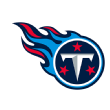Many NFL teams script their first 15 (or more) plays before a game starts to focus on getting a few fundamental concepts right. Whether they want to attack a particular defensive player or scheme, exploit a perceived weakness or simply drill down on the offensive elements they think are most critical to winning, they pay particularly close attention to the plays they'll start with on Sunday as they wrap up the week.
Likewise, organizations need to pay attention to the first few critical things they do during the 2017 offseason, as those might end up defining the season to come. Some teams have a lot to do before the new league year begins March 9, while others won't have to make critical calls until the first day of the NFL draft on April 27.
In this series for ESPN, I'll be running through the first five things that should be on the minds of each team's brass as they prepare for the 2017 offseason. Let's head to the AFC South, starting with the division champion Texans.
Texans | Colts | Jaguars | Titans

Houston Texans
1. Pick up Jadeveon Clowney's fifth-year option. This isn't quite as obvious as some of the other names from the 2014 draft, owing to Clowney's struggles to stay healthy. Clowney's fifth-year option for 2018 would be guaranteed for injury, so if he suffered a serious injury, the Texans could be on the hook for a player who can't really contribute. Clowney wasn't quite as productive in 2016 as his highlight reel might indicate -- he finished the year with 6.0 sacks and 17 quarterback hits, roughly in line with what Akiem Hicks (seven sacks and 17 hits) accomplished -- but he's too devastating of a force on his best day for the Texans to decline a fifth cost-controlled season.
2. Trade the 25th pick to the Patriots for Jimmy Garoppolo. As I wrote about in the AFC East preview, the Texans make the most sense for Garoppolo. They have a coach in Bill O'Brien who is familiar with the scheme Garoppolo was running in New England. They're a win-now team with a huge need at quarterback. They have an asset that makes sense to deal for Garoppolo: It would be virtually unprecedented for a team to deal a top-five pick for a backup one year away from free agency, such as Garoppolo, so the 25th pick might be a better offer for the Patriots than one of the early second-rounders likely to come from the Browns or 49ers.
Garoppolo is also the most obvious upgrade the Texans can make, given their cap situation. With $26.7 million available this year and several starters needed on defense, Houston can afford to sign Garoppolo to an extension, which would essentially start next season. (They could give the Pats backup a signing bonus and spread it over the length of a four- or five-year deal.) Garoppolo's base salary can spike next year, once the Texans release Brock Osweiler, who will presumably be chained to the bench after this deal occurs. Here's a possible Garoppolo deal, which ironically resembles Osweiler's contract, as a five-year, $100 million deal with $38 million guaranteed (and bolded):
Texans fans might not want to take a risk on another young quarterback, but what are the other options? Another run with Osweiler won't exactly go over well. There's little reason to think Tom Savage is very good. Tony Romo has major injury concerns and won't take this sort of contract. They could take a one-year flier on somebody like Jay Cutler and hold onto their first-round pick, but if you don't trust this coaching staff to develop a young quarterback, you basically need to replace the staff. Garoppolo would be a defensible risk, even if the risk the Texans took on Osweiler failed.
If the bidding goes much further than the 25th pick, though, the Texans need to bow out. They can't trade a bunch of picks for Garoppolo. Maybe they could send a conditional late-round pick to the Patriots if Garoppolo makes the Pro Bowl, or they could trade a fifth-rounder for a player buried on another team's depth chart who might need a change of scenery. Beyond that, the Texans would be risking too much.
3. Re-sign A.J. Bouye and trade Johnathan Joseph for a draft pick. The Texans probably can't afford to re-sign Bouye, who is in line to make $12 million or so per year on the free market, while also retaining both Joseph and Kareem Jackson. Houston can franchise Bouye for $14.3 million en route to a long-term deal for their budding superstar at corner, who will turn 26 just before the season.
The logical move, then, would be to trade Joseph, who is entering the final year of his deal at a very reasonable cap hit ($6.9 million) as he turns 33. Joseph is still playing at a high level, but the Texans probably don't want to be in the business of betting on cornerbacks as they enter their mid-30s, as the sudden fall of Darrelle Revis should remind onlookers. If Bouye leaves, chances are that the Texans will be looking for a cornerback across from Jackson by 2018.
4. Lock up DeAndre Hopkins. Busy offseason, huh? The Texans obviously want to bring back their star wide receiver, who had a frustrating 2016 while dealing with Osweiler. The good news is the disappointing season might bring his demands down on a long-term contract; the Texans will probably be able to buy relatively low on their former first-round pick as he enters the fifth and final year of his rookie deal.
5. Try to plug the defensive holes in the draft. Houston is set to lose a pair of defensive starters, with Quintin Demps hitting free agency and Vince Wilfork likely retiring. They probably can't afford to make all of these moves and go after veterans at nose tackle and safety. They might wait out the market to sign a veteran such as Terrance Knighton for cheap, but general manager Rick Smith will probably have to target regular contributors in the draft and hope that the star-laden defense surrounding those holes can cover for the rookies.

Indianapolis Colts
1. Get Arthur Jones to take a pay cut. New general manager Chris Ballard has $60 million in cap space to work with, so he doesn't necessarily need to be spendthrift, but Jones has been a disaster since coming over from the Ravens, due to injuries and suspensions. He's unlikely to stick on his current $7.4 million cap hit, so the Colts will probably either ask him to take a pay cut or release the former Ravens standout outright.
2. Fix the right side of the offensive line. Keeping Andrew Luck safe is job No. 1 for Ballard, after the deposed Ryan Grigson repeatedly struck out in doing so. The Colts are locked into the trio of Anthony Castonzo, Jack Mewhort and Ryan Kelly, and while Castonzo hasn't been an upper-echelon left tackle, moving him to a position he hasn't played as a pro in right tackle is probably just going to make things more difficult.
Ballard can't go into Week 1 with Denzelle Good and Joe Haeg on the right side of the line. He could very well use his first-round pick on a tackle, while heading into free agency for somebody such as Larry Warford or Kevin Zeitler to play right guard. Luck's ability and desire to extend plays means he'll always take more hits than most quarterbacks, but teams can't be allowed to tee off on Indy's franchise quarterback any longer.
3. Find a top pass-rusher. Easier said than done, but the Colts are totally bereft on the edge. Erik Walden had a career year with an 11-sack campaign, but he's a free agent and turns 32 before the season. Robert Mathis, the only other player on the team who topped three sacks, retired. Trent Cole is on his way out. Akeem Ayers is a free agent. Outside linebacker is a gaping hole.
Indy could re-sign Walden, but given the former Packers player had 12 sacks across his first three seasons before picking up those 11 sacks last season, the Colts can't rely on him to be their primary pass-rusher. They will probably need to head into free agency and pay full freight for one of the edge rushers hitting the market. If the Cardinals and Chargers franchise Chandler Jones and Melvin Ingram, respectively, that market is going to be quite thin. Indy might have to be the team that takes a risk on paying Jason Pierre-Paul or Nick Perry, if only because they don't really have another clear path toward an upgrade.
4. Find a long-term solution at running back. Frank Gore has been underwhelming during his time in Indianapolis, although the offensive line hasn't helped much. The Colts could consider cutting the veteran back before the final year of his deal to save $3.5 million, but it wouldn't be a surprise to see Indy hold onto Gore as part of a rotation with a younger back, one who will take over as the starter in 2018 and beyond.
That back will most likely come in the draft, given that this is a relatively robust draft class of halfbacks. Indy could feasibly consider Leonard Fournette, if he drops to the 14th pick, although the Colts have too many holes along the line of scrimmage to spend such a high selection on a running back. It's more plausible for Ballard to consider somebody such as Christian McCaffrey, if he slipped to Round 2.
5. Add a second tight end. The Colts might be priced out of the market for Jack Doyle in a relatively thin tight end class, and they can't really afford to pay their second tight end $6 million per year to line up behind Dwayne Allen. They could take a shot on somebody such as Luke Willson or Mychal Rivera, but more plausibly, this would be a position for the Colts to address in the draft.
If his market falls to the $4 million range, though, the Colts might very well be able to justify bringing back Doyle after a breakout 59-catch campaign. Is he worth it? Hard to say. Over the past four seasons, no wide receiver or tight end with 100 targets or more has caught a higher percentage of the passes thrown his way than Doyle (79.7 percent). Not coincidentally, though, the average pass thrown to Doyle has traveled just 4.7 yards in the air, the lowest total in the league by nearly seven-tenths of a yard.

Jacksonville Jaguars
1. Cut Davon House and Dan Skuta. The Jaguars already began their annual culling of disappointing free agents by trading Julius Thomas and cutting Jared Odrick, but that's only the beginning. Like Odrick, House and Skuta each played fewer than 25 percent of Jacksonville's defensive snaps while giving way to younger talents in Jalen Ramsey and Myles Jack. The Jagus don't need the cap space, but they're better off applying the $18.6 million in actual cash that would have gone to Odrick, House and Skuta toward new talent.
2. Re-sign Prince Amukamara. The former Giants corner benefited from playing across from Ramsey, who was a star from Week 1, but Amukamara rebuilt his value with a useful 2016 campaign and is in line for a raise on the $5.5 million he made last year. The Jags don't have much at cornerback after Ramsey and Amukamara if they release House, and while they can address the position by adding a different free agent or hitting it during the draft, they certainly have the cap space to retain Amukamara. In fact, given that the Jags would have $81 million in space after making those releases, it wouldn't be out of the question for Jacksonville to franchise Amukamara at the $14.3 million figure as leverage to negotiate a longer-term deal. The Jags have no other notable free agents they should try to retain, as both Luke Joeckel and Jonathan Cyprien were highly disappointing during their time in Jacksonville.
3. Upgrade the offensive line. Doug Marrone saw Jacksonville's offensive line struggle firsthand as their positional coach, and now that he has been given the head job, it seems extremely likely he'll target the line for improvements. If you're wondering whether it's a bad thing that Marrone didn't really seem to develop the team's young offensive linemen (or their veterans) and still got promoted to the head-coaching gig anyway, well, you're not alone.
Jacksonville already made a move by essentially swapping Thomas for Branden Albert, which will give them a solid short-term left tackle for the first time since Eugene Monroe was on the roster. It's not the only addition they'll want to make. The Jags could benefit from a deep free-agent class at guard by targeting a guy like Warford or Zeitler to fill in at left guard for Joeckel. 2015 third-rounder A.J. Cann hasn't been much better as a starter, so the Jags could plausibly replace both of their guards this offseason.
4. Re-sign Allen Robinson and Telvin Smith. Outside of Ramsey, Dave Caldwell's two top draft picks both came in the middle rounds of 2014. Like Hopkins in Houston, Robinson had a frustrating 2016 season driven by poor quarterback play, but it's impossible to doubt the former Penn State star's talent. Indeed, most of what was perceived to be a Blake Bortles breakout in 2015 was magic from Robinson. The frustrating 2016 may drive Robinson's price down a bit, but they didn't do themselves any favors by signing Allen Hurns to an extension two years before he would have been an unrestricted free agent without getting much of a discount. Hurns might now be their third-best wideout with Marqise Lee showing signs of life last season.
Robinson is going to have his market set by the deals handed out to the likes of Hopkins and Alshon Jeffery this offseason. Beyond them, Robinson's representation will look at the deal handed to T.Y. Hilton as a comp. Hilton received $38 million in new money over the first three years of his extension from Indy, and Robinson will be heading in the same ballpark.
The Jags will have little trouble finding the money for Robinson, and they need to shell out for Smith, who is one of the most underrated linebackers in football. Few weakside 'backers have his range, as Smith tied for the league with 11 tackles for loss against the run last year. The closest comp for Smith is Tampa's Lavonte David, who got $29.8 million over the first three years of his extension with the Bucs. Smith will be in the same range for Jacksonville.
5. Find a starting tight end. With Thomas gone, the leading tight end on the roster is Marcedes Lewis, who has seemingly been in a Jaguars uniform since the last time Tom Coughlin was involved with the organization. The Jags were right to move on from Thomas after a pair of frustrating seasons, but they're left with a gaping hole at tight end in a season where there aren't many useful tight ends on the market.
Caldwell could try to outbid the market for Martellus Bennett, who seemed to enjoy his lone season with Coughlin in New York (and vice versa), but the Jaguars may be hesitant to give another tight end a deal approaching $9 million per year after Thomas flamed out. They could head to the middle of the market and target somebody like Doyle or Levine Toilolo, but I wonder if there are better options. Maybe they try to pry somebody like Maxx Williams away from the Ravens halfway through his rookie deal for a late-round pick. The most plausible answer would be the Jags addressing the position in the draft, perhaps as early as Round 2.

Tennessee Titans
1. Pick up Taylor Lewan's fifth-year option. The Michigan product has matured into one of the best tackles in football. He'll be in line for an enormous raise soon, but for now, the Titans can lock him in for 2018.
2. Go after a cornerback. The biggest weakness the Titans exhibited during their surprising 2016 campaign came at corner, where Perrish Cox was one of the worst regulars in football before being released at midseason. Jason McCourty also had a disappointing season after returning from an injury-hit 2015, although teams had a field day throwing away from Tennessee's nominal No. 1 corner.
With $67.6 million in cap room, the Titans don't have to cut McCourty, and they can afford to go after one of the better cornerbacks on the market, if they're so inclined. Trumaine Johnson? Stephon Gilmore? If anything, it wouldn't surprise me to see Tennessee target Logan Ryan, given that Titans general manager Jon Robinson was the director of college scouting for the Patriots when they drafted Ryan in 2013.
3. Sign Martellus Bennett. Robinson wasn't around when the Patriots acquired Bennett last year, but the best tight end on the market makes sense for the Titans. Tennessee already has a very capable No. 1 at the position in Delanie Walker, but the former 49ers backup will turn 33 before the upcoming campaign. The Titans also lined up with two or more tight ends on a league-high 409 snaps last season, so coach Mike Mularkey wouldn't have many concerns about putting Bennett and Walker on the field together.
4. Use at least one of your first-round picks to add a defensive lineman. The Titans are sitting pretty after last year's trade with the Rams. They gave away some of the return as part of their deal to move back up in the first round with Cleveland, but Tennessee came away with a productive right tackle in Jack Conklin and a bevy of extra picks. The Titans are down their second- and sixth-round picks this year, but they'll have extra selections in the first and third rounds from the Rams, including the fifth overall pick.
Robinson will have plenty of flexibility on what to do with the fifth pick. He could plausibly opt for secondary help at that spot, but it seems more likely he'll opt to upgrade a defensive line that overachieved a bit in 2016. Jurrell Casey is a bona fide star, and Al Woods is a solid nose tackle, but the Titans may want to rotate DaQuan Jones on the opposite side. The torn Achilles suffered late last season by useful backup Karl Klug might push the Titans further in this direction. Given that this is a draft with tons of defensive line talent, the Titans can choose to head in that direction at pick No. 5 or 18.
5. Add a guard to compete with Quinton Spain and Josh Kline. Tennessee lost the guy who was supposed to be its best guard when Chance Warmack went down after two games with a torn tendon in his hand, but it didn't seem to matter much. The oft-frustrating Warmack was hardly missed, as the unheralded duo of Spain (a 2015 undrafted free agent) and Kline (who was signed off waivers from the Patriots in September) held their own as part of an excellent Tennessee rushing attack.
Spain and Kline deserve a chance to hold onto their jobs, but there's nothing wrong with going after a guard to rotate with them. It would make sense for Robinson to look at an interior lineman during the middle rounds of the draft. Warmack, who failed to live up to expectations after being drafted in the first round, is likely to leave town.
